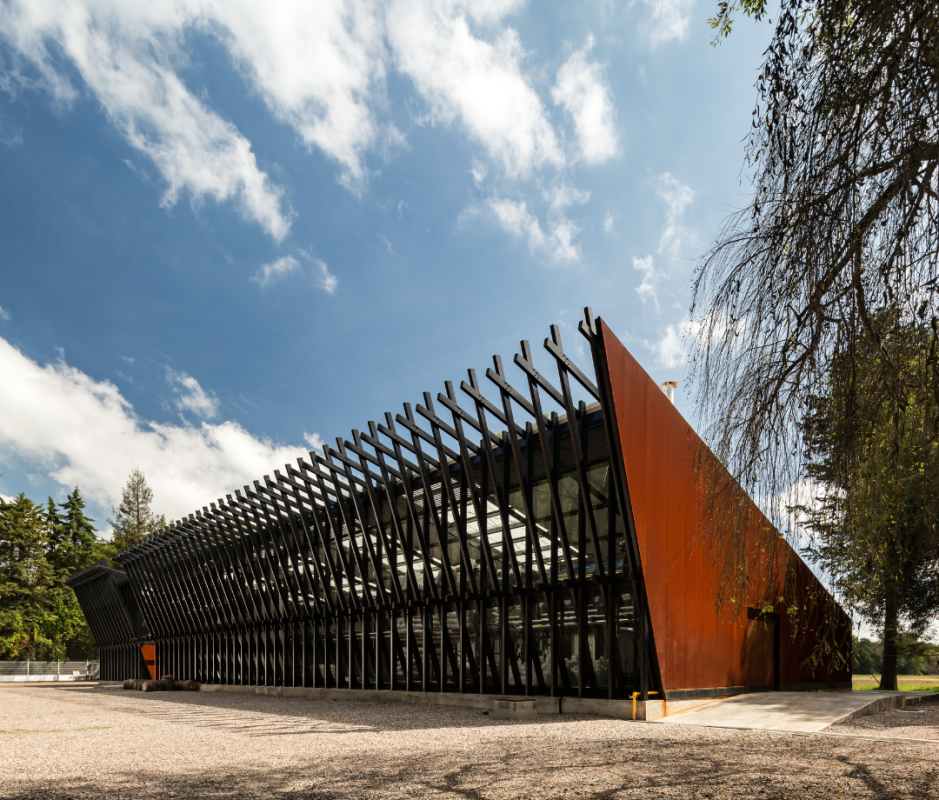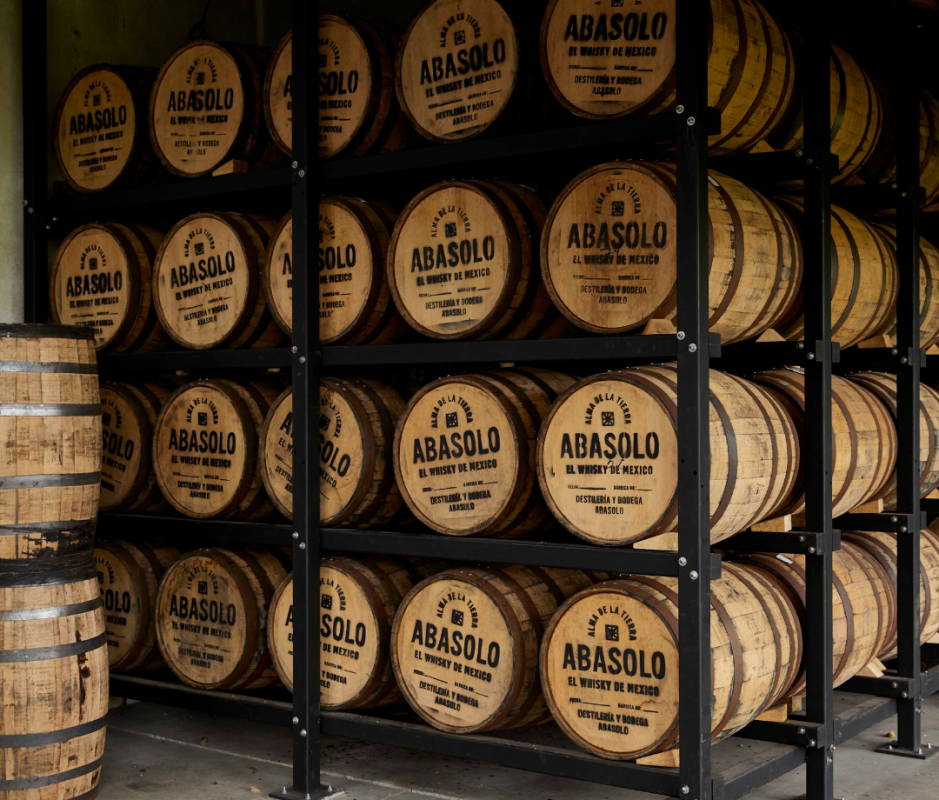This Mexican Corn Whisky Is the Perfect Middle Ground Between Bourbon and Scotch
About 60 miles northwest of Mexico City, 8,000 feet above sea level, oak barrels full of whisky sit in an open warehouse. With just a light roof overhead, the whisky is left vulnerable to the changing temperatures and climates of central Mexico. There, it ages for about three years—the final step before Destilería Abasolo bottles and ships its flagship spirit: Abasolo Whisky.
As one of the few Mexican whiskies on the market, Abasolo Whisky prides itself on the raw materials it uses and the 4,000-year-old process it follows. The liquor is made from cacahuazintle corn grown in Jilotepec in the state of Mexico, where the distillery is located. Combining some of Mexico's oldest and most emblematic flavors, the four-year-old spirit will wow any seasoned Scotch or bourbon drinker—and it's light enough to entice those venturing into whiskies for the first time.
As a corn-based whisky, aged in ex-bourbon barrels, you might expect Abasolo to taste like American-made spirits. But the distillers temper that sweetness so the whisky's more akin to lowland Scotch. It’s grassy and fresh on the nose, but on the tongue, its long aging process shines through with late notes of cinnamon and black pepper.
Men’s Journal aims to feature only the best products and services. We update when possible, but deals expire and prices can change. If you buy something via one of our links, we may earn a commission.

Courtesy of Abasolo
Abasolo Whisky is part of the Casa Lumbre Spirits family representing a whole slate of Mexican spirits like Ancho Reyes Liqueur and Nixta, a corn liqueur made from the same varietal as Abasolo. For Cesar Sandoval, brand ambassador for Casa Lumbre, it's hard to miss the sweetness of roasted corn in the whisky. That flavor blossoms with notes of honey, black tea, and white pepper with a bit of minerality from the Champagne yeast used during fermentation, he says.
Farmers in Mexico have been harvesting cacahuazintle corn for thousands of years. The crop was passed down from generation to generation well before the Spanish colonized Mexico. It’s what Sandoval calls "ancestral corn," because the plant has never been genetically modified in its entire existence. Cacahuazintle also plays a major role in the country’s culinary history. The corn is the hominy that shows up in pozole. It’s the flour in a corn tortilla. The dough of a tamale. And, now, the sweetness in Abasolo.
That raw material is then paired with another part of Mexican history: nixtamalization. This process turns corn into gold, says Sandoval, breaking down the outer layer of the maize by soaking and cooking the corn in an alkaline solution made with calcium hydroxide for 12 to 15 hours. After resting overnight, the kernels have transformed from a simple sugar into a complex chain of aromas and flavors. Then they mill the corn to obtain flour. At this step, that flour can be mixed with water to make the masa, or dough, used for tamales or tortillas.

Courtesy of Abasolo
But Abasolo takes the flour and roasts it in a coffee roaster before fermenting, then it goes through two distillations. After the first, distillers end up with what they call ordinario. American whiskey drinkers call it "low wine." The second, slower distillation ends with a 125 proof, 62.5 percent ABV whisky that spends three years in oak barrels outdoors by the same field where the corn is grown.
The balance of roasted corn, minerality, and outdoor aging creates a world of flavor that works whether drinking it straight, in a classic highball with a squirt of lime, or even in a margarita. "It has these flavors that you can play with that remind you of tequila or mezcal or rum because of its outdoor aging," says Sandoval.
This full-circle process represents the brand's ethos. Printed on every bottle are the words "alma de la tierra," or soul of the earth. "That's what we want to embody," he says. "We want to embody this raw material with not only terroir but with ancient processes, something that goes back to the earth."
Related: We've Tasted Hundreds of Whiskeys. These Are the Best in the World



